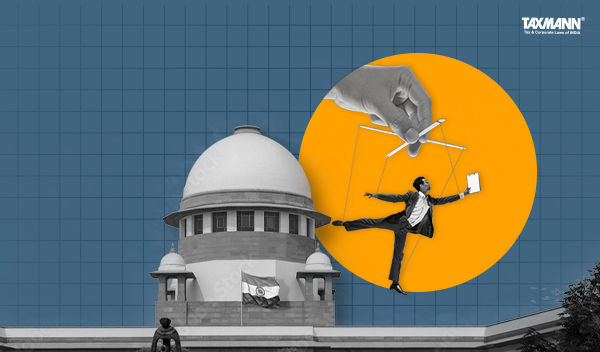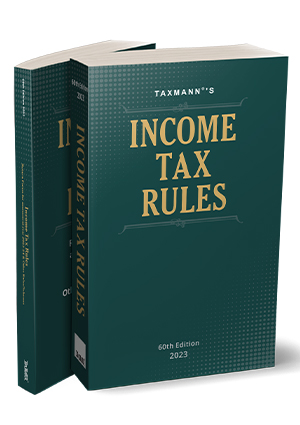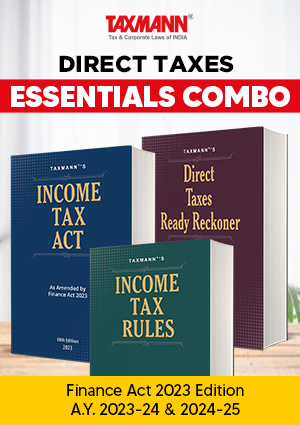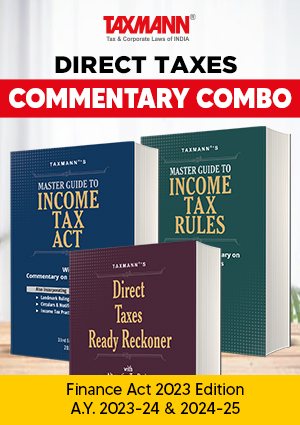No Separate Notice is to Be Issued to Joint Account Holder for Recovery of Tax Dues From Primary Account Holder | HC
- Blog|News|Income Tax|
- 2 Min Read
- By Taxmann
- |
- Last Updated on 29 May, 2024

Case Details: Pratik Chimanbhai Gami & Anr. Vs. Union of India & Ors. - [2024] 162 taxmann.com 801 (Gujarat)
Judiciary and Counsel Details
-
- Bhargav D. Karia & Niral R. Mehta, JJ.
- Keyur Jaldeep Shah & Prashantkumar R. Sharma for the Petitioner.
- Karan G. Sanghani for the Respondent.
Facts of the Case
The petitioners were farmers and were doing agricultural activities. They sold agricultural goods produced from the joint holding land with their uncle. They collectively cultivated the land and sold the seasonal crops. Out of the sale proceedings, an amount was deposited in the petitioner’s joint account with his uncle. When the petitioners approached the bank for withdrawal of the said amount, they were informed that there was an attachment to the joint account for the uncle’s outstanding amount from the Income Tax Department for non-payment of said amount.
The petitioners approached the Gujarat High Court and contended that no notice under Section 226(3) of the Income-tax Act was issued to the petitioners before attaching the account. It was submitted that the petitioners were the secondary account holders, and their uncle was the primary account holder in the said joint savings account.
High Court Held
The High Court held that it was informed that the petitioners were secondary account holders and their uncle was the primary account holder in the said joint savings account.
When the impugned notice was issued for recovery of the outstanding dues of the uncle, who is defaulter in making payment of dues to the department, merely because the petitioners were joint account holders, no separate notice was required to be issued to the petitioners for having a joint account as secondary holder in view of provisions of Section 226(3)(iii) of the Act.
Further, upon perusal of the provisions, it was clear that notice must be forwarded to the assessee from whom money is due or may become due to the assessee or any person who holds or may subsequently hold money for or on account of the assessee. This means the notice must be issued from whom the amount is due and not to the joint account holder.
If the petitioners have any grievance against recovery of the above dues in the account of their uncle along with them, they can initiate necessary proceedings in accordance with the law before the appropriate forum.
Accordingly, the writ petition was disposed of.
List of Cases Referred to
-
- Beena Muralidhar v. Tax Recovery Officer, Hyderabad rendered vide judgment dated Writ Petition No.16100 of 2019 (T-IT) (para 3).
Disclaimer: The content/information published on the website is only for general information of the user and shall not be construed as legal advice. While the Taxmann has exercised reasonable efforts to ensure the veracity of information/content published, Taxmann shall be under no liability in any manner whatsoever for incorrect information, if any.

Taxmann Publications has a dedicated in-house Research & Editorial Team. This team consists of a team of Chartered Accountants, Company Secretaries, and Lawyers. This team works under the guidance and supervision of editor-in-chief Mr Rakesh Bhargava.
The Research and Editorial Team is responsible for developing reliable and accurate content for the readers. The team follows the six-sigma approach to achieve the benchmark of zero error in its publications and research platforms. The team ensures that the following publication guidelines are thoroughly followed while developing the content:
- The statutory material is obtained only from the authorized and reliable sources
- All the latest developments in the judicial and legislative fields are covered
- Prepare the analytical write-ups on current, controversial, and important issues to help the readers to understand the concept and its implications
- Every content published by Taxmann is complete, accurate and lucid
- All evidence-based statements are supported with proper reference to Section, Circular No., Notification No. or citations
- The golden rules of grammar, style and consistency are thoroughly followed
- Font and size that’s easy to read and remain consistent across all imprint and digital publications are applied




